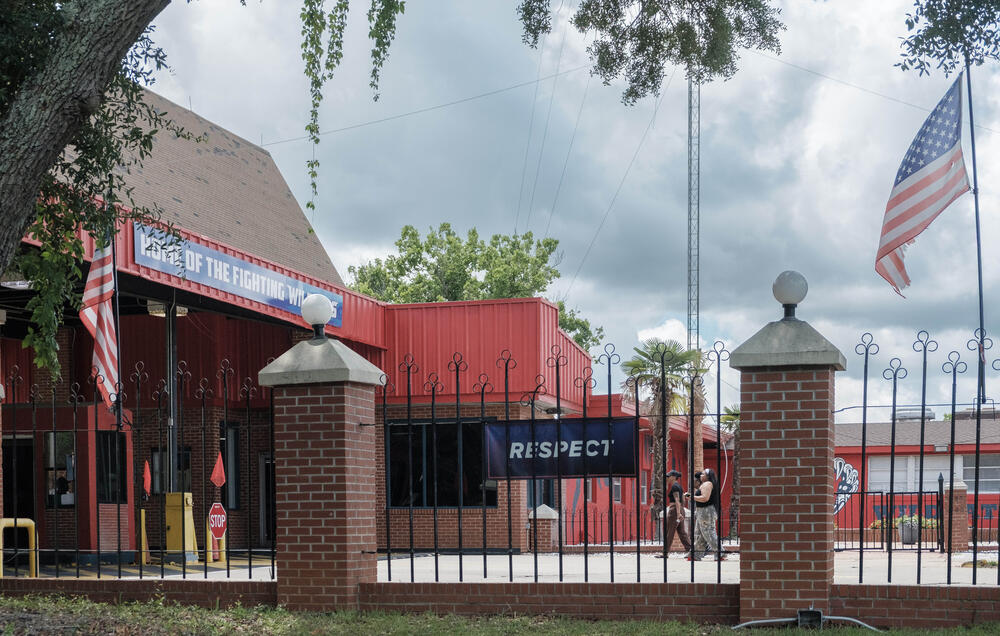
Caption
The entrance to the Turner Job Corps Center in Albany on June 5. Around 500 students live and study at the Turner site, making it one of the larges Job Corps centers in the country.
Credit: Grant Blankenship/GPB
LISTEN: Job Corps students bring a second suit to stop plans to shutter the program

The entrance to the Turner Job Corps Center in Albany on June 5. Around 500 students live and study at the Turner site, making it one of the larges Job Corps centers in the country.
Students enrolled in the Job Corps program from across the country are suing the U.S. Department of Labor over plans to shut down all 99 Job Corps centers by the end of June.
About 25,000 young people are enrolled in the program, which began in 1964 during the Johnson administration and by statute must serve the most vulnerable and at-risk young people.
One of the plaintiffs is a student from Turner Job Corps Center in Albany, Ga., where GPB reported last week that some fear returning to homelessness if the program ends.
The suit brought by the Southern Poverty Law Center and Public Citizen Litigation Group is the second court challenge to the closure plan, but the first brought by students.
“That was really important for the young people who are being faced with losing housing, losing healthcare,” said Public Citizen attorney Adam Pulver. "To put a face to what's actually at issue and what's at stake here. It's not a waste to spend money to make young people's lives better.”
In its May 29 letter announcing its intent to wind the program down, the federal Department of Labor cited cost overruns into the hundreds of millions of dollars as a primary reason for the move, which would end the program by June 30.
Southern Poverty Law Center attorney Scott McCoy said ending the program would leave students in grave circumstances, removing them from the housing and meals they enjoy on Job Corps campuses as long as they are enrolled.
“What's at stake is really basic things: Where am I going to live? Am I going be able to have enough to eat? Am I gonna have access to health care, to mental health care?” McCoy said. “Am I to be able to finish all the hard work that I have done thus far to get the certification or the licensure or the training certificate that will allow me to get a good paying job which will help me have economic security?”
Support for the Job Corps program is strong among Democratic members of the U.S. House and even some Republicans. The City of Albany recently hosted a rally in support of Job Corps students and employees.
SPLC attorney Scott McCoy says the argument in their case is that the Department of Labor is moving too fast to remain in compliance with something called the Administrative Procedures Act, which he said was designed to make sure when programs like Job Corps are wound down, that it is done methodically and with as little human harm as possible.
President Trump has signaled in his fiscal year 2026 budget request that he would like to see Congress zero out Job Corps funding.
The class action brought by the students is the second federal suit aimed at stopping the end of Job Corps. The first was brought primarily by the National Job Corps Association, which represents the interests of the private sector companies with federal contracts to run Job Corps campuses, but also the Transportation Communications Union.
A temporary restraining order in the first suit is in place through June 25.
Attorney Scott McCoy said he hopes the suits can keep the Job Corps alive long enough for Congress to have a real debate about the program.